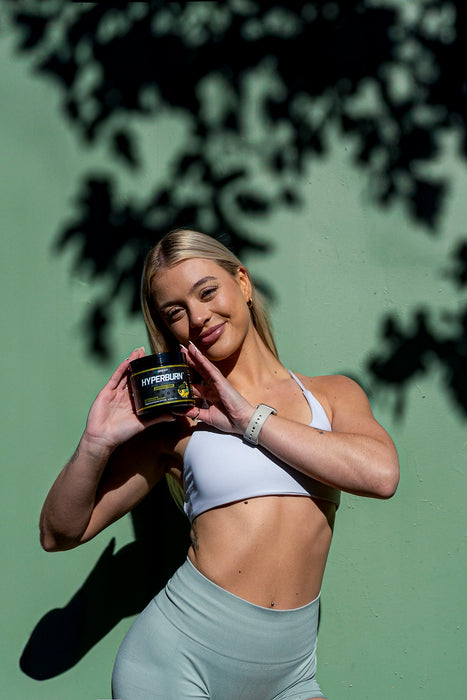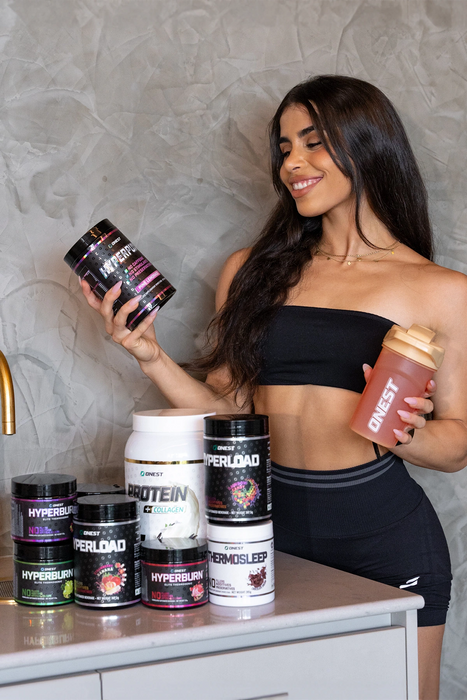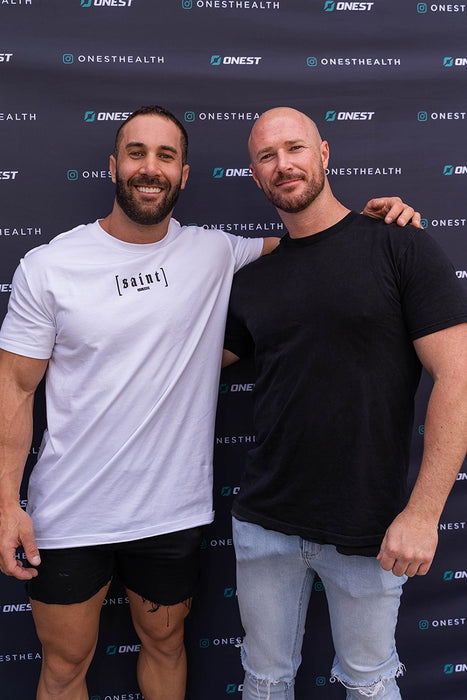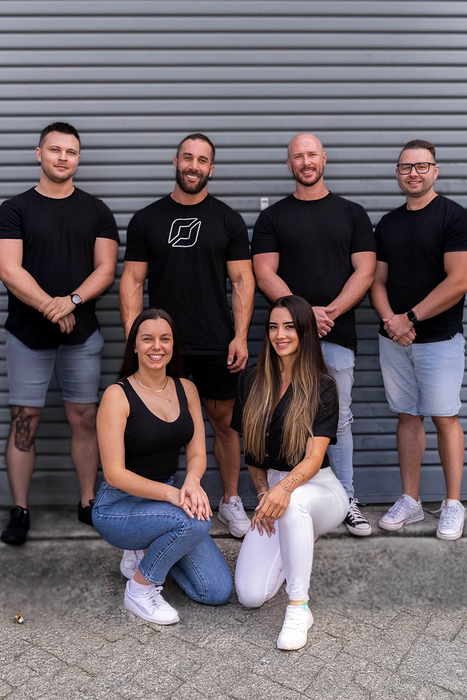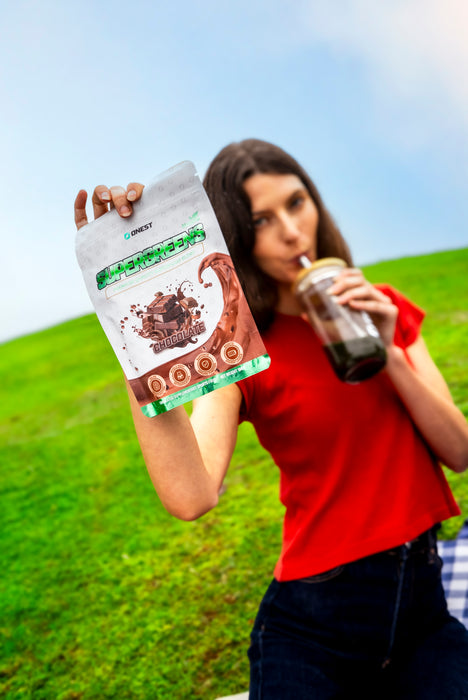IS COLLAGEN PROTEIN THE SAME AS PROTEIN POWDER?
You’ve likely heard of collagen and, indeed protein, but do you know what they are?
How can each benefit your body and health?
Can you confidently answer the question: is collagen protein the same as protein powder?
If not, this article is essential.
By understanding what collagen is and how it differs from other proteins, including those traditionally used in supplementation — you can make the right choices to achieve your goals. Driving fat loss, muscle growth, body sculpting, reducing pain, and enhancing your function and well-being.
Let’s start at the beginning…
What is protein?
Protein, a vital macronutrient, is akin to a train composed of individual carriages known as amino acids. Just as each carriage contributes to the complete train, each amino acid plays a crucial role in forming a whole protein molecule.
Proteins make up your muscles, enabling you to move and sculpt an impressive physique. However, their role extends beyond muscles and strength — they speed up cellular reactions, provide structural integrity, allow and ease nutrient transport, bolster immunity, serve as hormonal building blocks, and orchestrate gene expression. Yes, they’re that important!
There are different types of amino acids. Some are essential amino acids — you must consume them in your diet. The nine essential amino acids (EAAs) are histidine, isoleucine, leucine, lysine, methionine, phenylalanine, threonine, tryptophan, and valine.
Others are non-essential amino acids — they can be created in your body. These include alanine, arginine, asparagine, aspartic acid, cysteine, glutamic acid, glutamine, glycine, proline, serine, and tyrosine.
The low down on traditional protein powders
Traditional protein powders are derived from casein, whey, or plant-based proteins like soy or rice.
High-quality, science-backed, non-collagen protein powders have well-established and far-ranging benefits. They support muscle growth and fat loss, aid exercise performance and recovery, and help us reach our daily protein requirements.
When combined with resistance exercise training, protein supplementation elevates muscle gains and strength.
A high-protein diet is a practical, safe approach to achieving weight loss and stopping potential regain and may “prevent obesity and obesity-related diseases.”
Protein supplementation has proved a boon for performance and recovery. An article in the journal Frontiers in Nutrition noted that supplementing around the time of exercise plays a “role in optimizing physical performance and positively influencing the subsequent recovery processes for both resistance training and endurance exercise.”
The current Recommended Dietary Allowance (RDA) for protein is 0.8 grams per kilogram of body weight. With increased exercise and as we age, we may need more. Consuming protein powder helps to ensure a healthy intake.
Protein supplements can genuinely make a significant difference in your health. That’s why we have three available formulations.
Whey Protein Isolate uses 100% whey protein isolate, with a low-lactose and ultra-low carb formula and added digestive enzymes.
With our overview of protein powders completed, now is an excellent place to return to the question: Is collagen protein the same as protein powder?
Before we answer this question directly, let’s look at collagen in some detail.
What is collagen?
Every protein is unique, made from a particular set of amino acids. This difference determines a protein’s functions in the body. Collagen, then, is unlike other proteins in its specific construction and, therefore, functions.
Collagen is our most abundant protein, forming vital elements in our bone, cartilage, skin, tendons, and other types of connective tissues; the structural framework that supports and binds various body parts.
An analogy we’ve used before is this:
In a vertical garden, collagen is like the latticework supporting plants. Where the fretwork provides a foundation for fresh plants to grow, collagen provides a foundation for new cells to flourish.
Twenty-eight types of collagen have been discovered to date. The most common are designated type I through to type IV. Type I takes the cake, so to speak, making up more than 90% of the collagen in the amazing human body.
Each type of collagen varies in the amino acids it contains. Type I collagen is made from the amino acid glycine and two others. While these two others can be any amino acids, they’re most often proline and hydroxyproline.
This brings us to the answer to our question: Is collagen protein the same as protein powder?
In short, no. It’s not. Collagen is different in structure and so different in function.
The low down on collagen supplementation
Due to collagen’s vital role in maintaining the body’s structural integrity and function – and in encouraging a youthful complexion – many people have turned to collagen supplements, particularly as they age, for good reason.
Evidence shows that collagen supplementation can:
— boost blood flow
— ease joint pain
— improve joint function
— reduce the appearance of fine lines and wrinkles
— strengthen bones and muscles
— thicken your nails
— and more
Without collagen, life would grind to a halt. We’d struggle to move, stand, stay hydrated, and survive. It’s not an exaggeration to say that this compound is essential for life.
Combined effects of collagen protein and traditional protein powder
Just as one key doesn’t unlock every vehicle in a parking lot, one amino acid doesn’t “unlock” every function in the body. Because collagen and traditional protein powders contain different amino acids, they perform various bodily roles. They also come from different origins.
Protein powders can be vegan, vegetarian, or contain dairy. Due to its location, collagen is sourced from the connective tissues of animals — for example, fish, bovine (cow), and porcine (pig).
Collagen protein’s emphasis on skin, joint, and connective tissue health complements traditional protein powders' muscle and weight-loss-focused benefits. Combining both supplements can address multiple aspects of your well-being, from enhancing physical performance to pain relief and heightened youthfulness.
That’s why we’ve formulated a unique product combining the best protein and collagen!
Protein + Collagen blends the power of protein and collagen in one easy-to-use product. With 10 grams of collagen and 25 grams of protein in every scoop, it’s a crowd fav!
As Carolyn T. said, “Thanks Onest! I have noticed a big difference in my consumption of Protein + Collagen along with exercise they marry together perfectly.”

